Christoph Neuerburg, Oboe, English horn
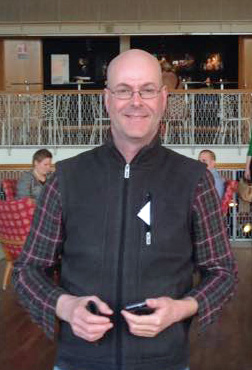
Interview and text: Leif Martinussen
Edition and translation: Nete Parkov
It is in the year 1978 in the opera house of Dortmund. A 10-year-old boy, Christoph Neuerburg, is with his school class to his first concert in the hometown. He is sitting among the breathlessly waiting audience with his eyes fixed on the orchestra pit. The musicians have tuned their instruments, and the hall is shrouded in silence. The conductor stands on the podium with half raised his arms ..
Then he gives the sign to start and the orchestra begins to play. Long gliding sounds of strings and French horn soars out into the hall. More instruments join – flutes, clarinets, oboes, timpani – the music pulsates increasingly dynamic. As one of the wind instruments sounds solo and presents the overture theme, the boy’s eyes locks up. He is fascinated by the very characteristic sound of the oboe, and a sprout is set in his mind. All his senses are now sharpened to the limit while attending the magic of the orchestra and the opera. Never before in his 10-year life has he ever experienced anything so amazing like this.

The experience of Carl Maria von Weber’s opera “Der Freischutz ” with choir, orchestra and solo songs makes such a big impression on the boy that his thoughts from now on will circle more and more about this musical and orchestral world.
Today , 38 years later, I have got a visit by the grown-up, professional German oboist Christoph Neuerburg together with my Danish organist colleague Niels Henrik Jessen. It is August 2016 and we sit on the garden terrace and enjoy the late summer breeze of the afternoon. I’ve been a little nervously prepared for the situation that our interview would be all in German, but fortunately it turns out that Christoph speaks surprisingly good Danish. I lean reassured back in my chair, my German is not something to boast about.
“As early as 5-6 years I was very fond of classical music“, Christoph recalls. “My desire was the music of Mozart, and I was given a music cassette with “Eine kleine Nachtmusik”. I very often listened to it.
When I had just started school at 6 years old I was taught the recorder timber together with my sister. I really liked this very much – and then it all went off. We had a pretty big recorder group with 6 or 7 teachers. But I felt immediately that we were not learned enough. I was not satisfied with all the simple songs, so I went into the music stores and searched for music.”
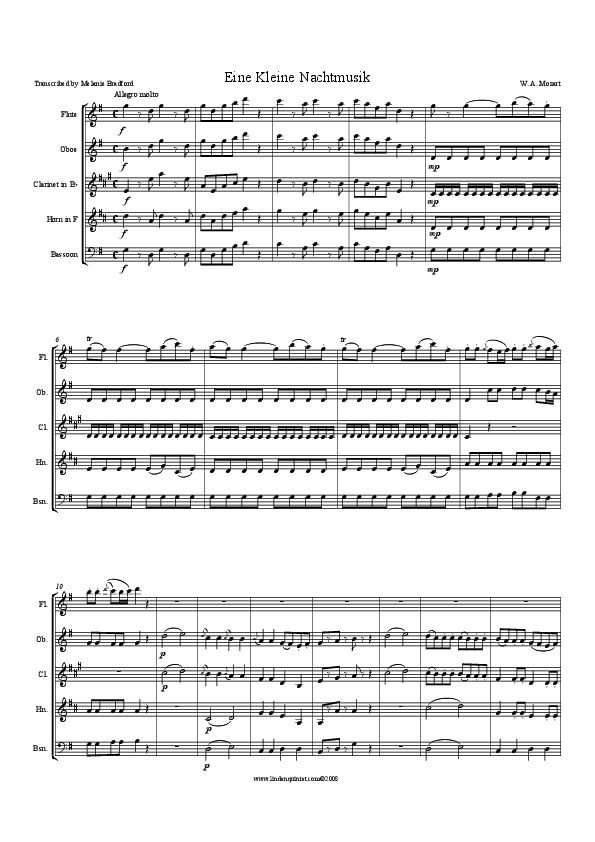
- It’s amazing that you so early have a feeling that there is something more than just “entertainment”, something that speaks more deeply to your soul. Has there been a tradition of music in your childhood? I ask.
“No, not really. My parents are not trained musicians. But my mother is very musical, indeed, and I remember that she sang a lot with us. She sat in the middle of the couch with my sister and me on either side, and then we sang from a big songbook. It meant a lot for my musical interest. However, I was curious about more complicated music, especially baroque music appealed to me. I do not know from where it was received, this momentum ….
- When did you take your first step on the path that could lead to something serious?
After the visit to the opera house with “Der Freischütz” I was very fascinated by the orchestra and especially the oboe sound. While I still played the flute as 12-13 years my wish was a record with oboe concerts. The big desire even to learn to play the oboe, however, came later – when I was 16. I had to wait to be a student of the right teacher, so I was 17½ years old when I finally started. Right away I knew this was my passion, and that this orchestra instrument should be my career. Luckily, my parents never doubted my choice. There were others in the family with legal education eg. who thought otherwise, but my parents always supported me in my own wishes.”
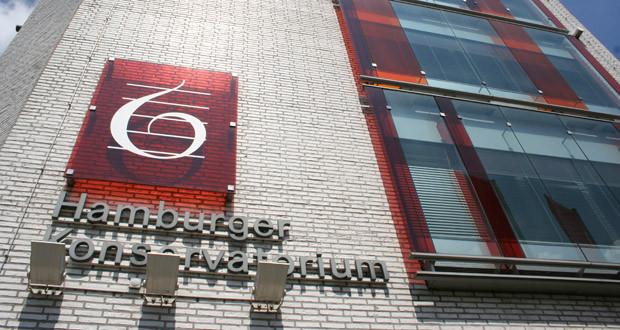
Christoph started at the music school in Dortmund and was later admitted to the Hamburg Conservatory. Here he took a diploma as an orchestral musician and music teacher. After graduation, he became a trainee at the Staatsoper Hamburg and this was the beginning of a life in close association with the traditional concert and opera environment in Germany, where he met all the big names in lots of opera and concert performances.
When I recall my first experience of Christoph Neuerburg as a concert soloist, I understand why he chose this particular instrument as his favorite. It was a concert in the David Church in Copenhagen on a Sunday, October 27, 2013, where Christoph played as well oboe as English horn together with organist Niels Henrik Jessen as his accompanist. Immediately in the first bars it became abundantly clear that the soloist was a dazzling and excellent artist on his two instruments. His musical tone formation was sensitive, beautiful and supported by a superior technique. Also the interplay between the two musicians was sublime, nothing seemed random or blurred, music reflected a mature cooperation and musicianship with a fine understanding of the works time genre. All works were redeemed rigorously and with great beauty. In the Czech composer Petr Eben’s “Six miniatures for oboe and organ” I quite clearly remember the elegant and charming dance of the oboe in excellent harmony with the organ. In two works by the Danish cellist and composer Lennart Jarde, the oboe was replaced with English horn in orchestrations of a Swedish folk song and an old Swedish hymn. The greater sound volume of the English horn was fine redeemed in these compositions containing a deep warmth and wonderful “Nordic glow”. Finally, one could also experience the English horn in the concert’s last work, Paul Hindemith’s Sonata for English horn and piano, published in 1941. A sublime and powerful 6-movement work.
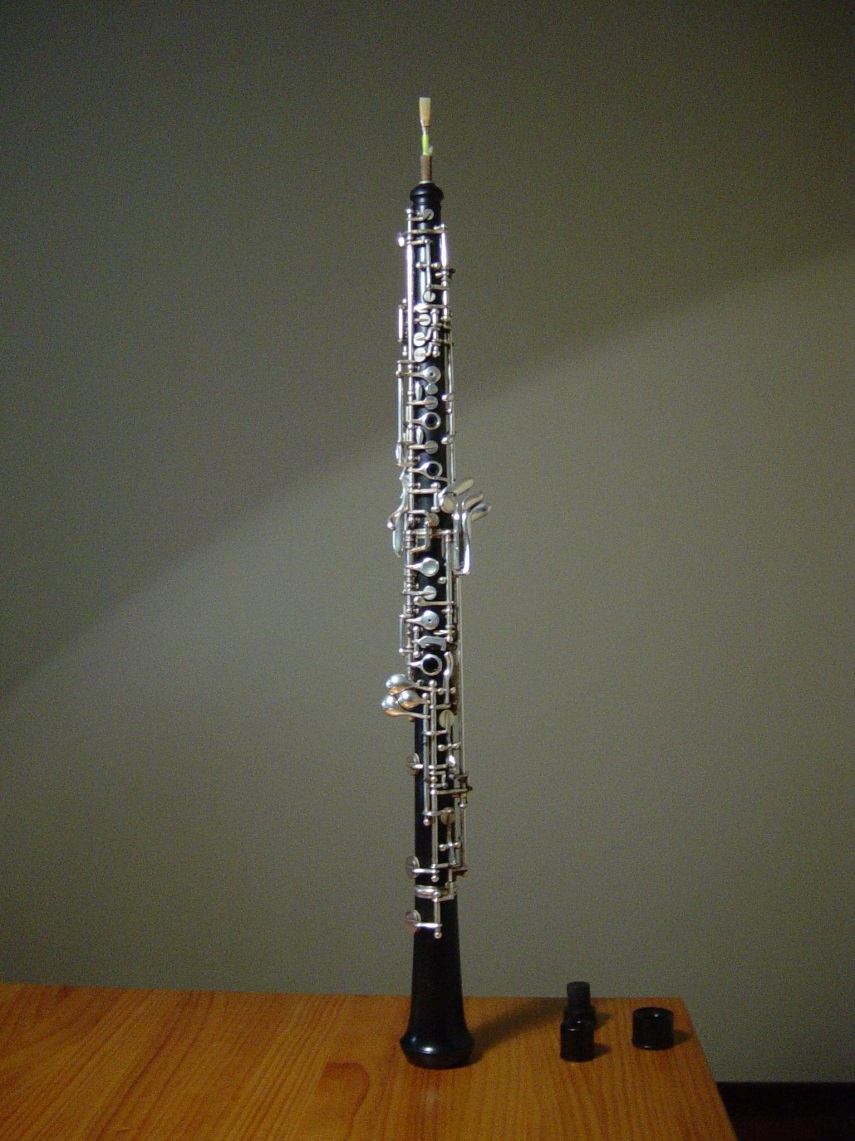
No doubt that Christoph is extremely familiar with his instrument the instrument oboe, originally a development of the shawn, a popular and frequently used instrument with double reeds in the Middle Ages and the Renaissance. The shawn was conquered by the Arabs (at the time of the Christians called Saracens), which explains why later occasionally the instrument has successfully been used to conjure up exotic atmospheres. ( … ) Around the year 1700 the oboe was an obvious instrument in most orchestras with wind instruments; prominent composers like Händel, Albinoni, J.S. Bach and Vivaldi have solo concerts for oboe on their conscience. In the Baroque period were also used deeper oboes, such as oboe d’amore and oboe da caccia, but today these appear rarely on concert programs. Although the oboe da caccia disappeared, its successor and close relative, the English horn, found seats in the orchestra in the first half of the 1800s. However, the English horn was awarded more anonymous functions than the caccia was in the Baroque period. Berlioz is one of the few composers in the 1800s, who occasionally let English horn become fully visible (the most famous example might be the beginning of the third rate in his Symphonie Fantastique). (Quote: The Virtual Music Library)
“At first I only played oboe”, Christoph Neuerburg says . ” But I was lucky that my professor at the conservatory in Hamburg was a solo English horn player at the Opera. Therefore, the English horn became my second instrument. And this was very beneficial, because most orchestral positions are very often combined oboe-English horn, which of course provides much more opportunities. English horn also has a beautiful sound which I like very much.”
“The oboe today is primarily an orchestra instrument, which is an integral part of the symphony orchestra”, he says. “In the past – especially in the Baroque period, but also in Classicism – it was often used as a solo instrument. And there are cantatas of Bach, containing a wealth of solo tasks for the oboe. In the romantic and modern times it becomes more sparingly. Stravinsky is probably the composer of our time, which awarded the instrument most prominent features.”
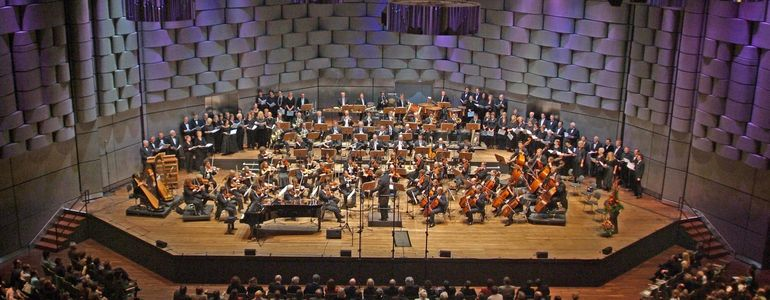
Today Christoph is alternating first oboist and English horn player in the Symphony Orchestra of Aachen, where he has a contract for 20 years at the many performances of operas and concerts. But before that, he had positions as both oboist and English horn player in respectively Theater für Niedersachsen in Hildesheim, Theater Görlitz and Weimar Staatskapelle, as well as temporary positions, inter alia, Deutsche Oper Berlin, Deutsches Symphonieorchester Berlin, Essener Philharmoniker and Staatsteater Sarbrücken.
With a looser affiliation, he has also undertaken assignments in Malmø Symphony Orchestra, and during those periods he has lived in Copenhagen. Christoph has namely 4 years ago married his Danish musician colleague Niels Henrik Jessen, who is organist at Kastrup Church in Copenhagen. Both have their good permanent posts in their respective countries, and that means that they have lived together and separately alternately as it has been possible. Despite this somewhat forced flexibility they have managed to create not only a private life that has been able to function, but also a sublime musical partnership where they often give concerts – as well in Germany as in Denmark.
But now, to the couple’s delight, they have got the opportunity to see more of each other in the near future, as Christoph has been given a year’s leave from Aachen. In the season 2016-17 he will play in Malmø, where he is ready to start next week.

They have seen the combination organ-English horn as a bit of a niche in their cooperation. Most oboe-organ duos are only with oboe. Therefore, there are not much written for English horn and organ, although English horn fits very well with the organ sound. Now, however, they got some things written for them and still hope to get more.
In privacy they both like to travel and they joyful enter an aircraft to take them to each other’s hometowns and to other places in the world, whenever they take time off together.
If I had not been organist, I had become tour guide”, Niels imagines. “I love to travel – and usually I’m the one who arranges our travels. Sometimes Christoph gets a little upset if I’ve put too many church visits into the schedules”, he says – and they are both smiling.
- Are there other interests besides music and travel life?
“I have read a lot”, says Christoph. “Especially the great classics, Thomas Mann, Hesse etc – and all the great Russian novels. And then I actually just read my first book in Danish, Jan Guillou ‘s “Facilitators”.”
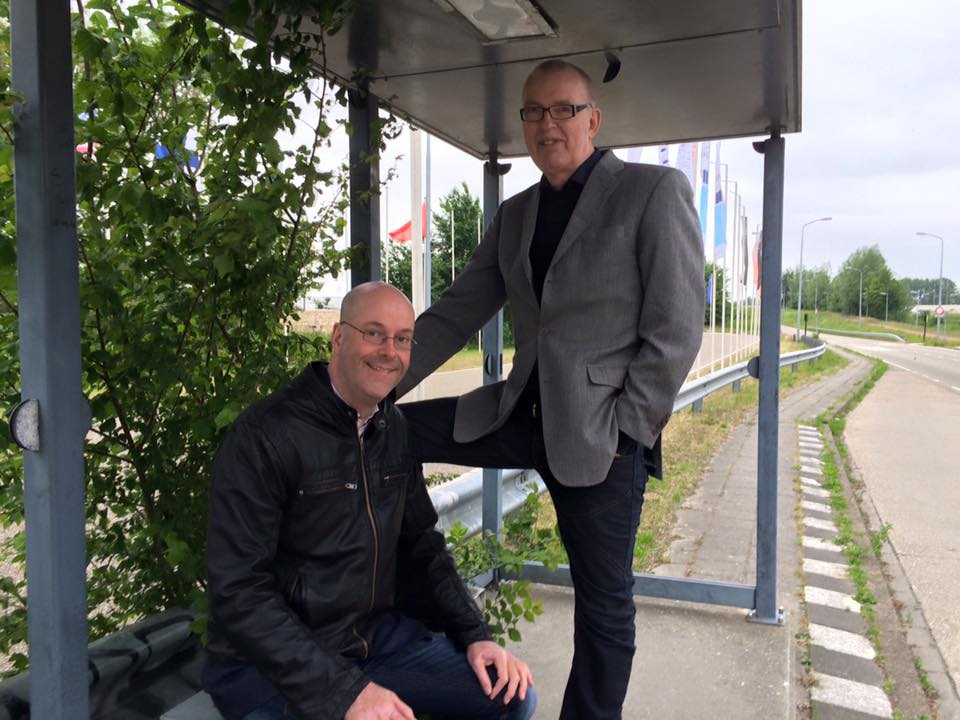
“I ‘ve only read German travel books, Niels admits. “I have not read a novel in German yet. But it will soon happen! ”
- Do you find it fascinating that you are of different nationalities?
“I am particularly fascinated by the tremendous cultural offerings I meet when visiting Germany”, Niels says thoughtfully. “It is overwhelming compared to what you can meet in Denmark. In Cologne, where we live, there are 10 opera houses within a radius of 100 km – and at least as many orchestras.”
“Well, in Copenhagen, we have also 3 orchestras, and then Malmö and Helsingborg Opera Houses close to us”, says Christoph. “The Øresund area looks a bit like the Cologne area that way. But I know of course that Germany has a cultural special status. They say a little jokingly, that no matter where you are in Germany, there cannot be more than 30 km to the nearest Magic Flute show. And that is how it is.”
Among the many performances you can also find the more experimental ones. Eg. – they got from a friend some rehearsal tickets to the Wagner opera “Siegfried” in the Festspielhaus in Bayreuth.
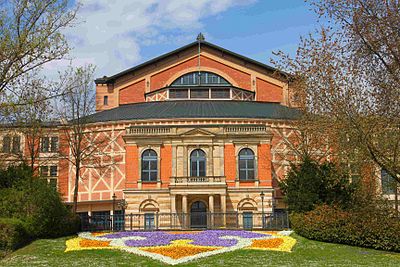
The house was great to experience, they tell. The orchestra and the singers could certainly not be complained about. But the scenography was hopeless, Niels claims. Siegfried and Brünhilde sing their love- duet after meeting each other on the Alexanderplatz in Berlin. Along with them there are 4 rubber crocodiles on stage. Siegfried feeds one of the crocodiles, and this gesture makes Brünhilde furious, for she will only allow him to concentrate on her. So she takes a big umbrella and sticks it into the jaws of the crocodiles.
“It made absolutely no sense. But of course it was a great experience”, Niels smiles.
“I also participate in more new experimental music genres”, Christoph says. “Among other things, I was participating in the performance of Helmut Lachenmanns opera “Das Mädchen mit den Schwefelhölzern” inspired by Hans Christian Andersen’s “The Little Match Girl” in Hamburg Staatsoper.”

Opera’s theme expresses solidarity with the poor outcast girl dying from cold and hunger on the street. Also been included quotations from letters from Gudrun Ennslin, the German terrorist and member of the Red Army Faction in the 70s and a gloomy text of the dissident playwright Ernst Toller.
Lachenmann developed his highly original composition techniques in the late 60s. He explored both the human voice and the musical instruments’ abilities to produce alternative sounds. As an example, the composition Guero for concert grand, where the pianist estimates not a single tone but only skims over the keys with nails and fingertips, playing on voting nails and strings and resonating sounds with the instrument’s pedals. The piano becomes a pure rhythm instrument. With “Das Mädchen mit den Schwefelhölzern” from 1997, he had in his compositions imported traditional tones, intervals, rhythms and chords, combined with the instruments’ voices and other options for sound phenomena.
“The orchestra was distributed throughout the opera house”, Christoph explains, ” and there is a stereo sound in the hall . Even I could not experience it because I sat in the orchestra, but I was told that the audience had a great experience.”
“There may also be accidents on stage”, he continues. I remember a performance of “Der Freischütz” in Görlitz. Max talks about shooting an eagle perched above them with one of his magic bullets. But before he has himself to shooting the eagle comes falling down on stage. Such charming stage manager errors can also occur – and thus give the whole thing a very human face.”
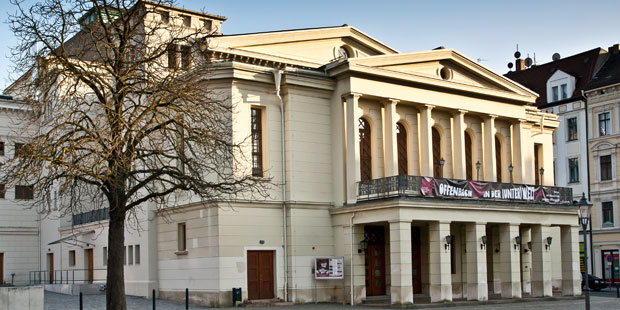
- Is there a difference between working in West Germany and in the former GDR?
“It was exciting to get a position in Görlitz in eastern Germany in 1996, even after the fall of the wall. You could actually feel that people were former GDR citizens, and they were a little hesitant about West Germans. Indeed it is still not settled. The mentality is not the same. They earn less, which of course also makes prices lower. Many of the medium-size cities are renovated in the center and look great, but then when you walk down the side streets, there are still many grey and dreary DDR-houses that have not been maintained for about the last 30 years. It’s a bit ambivalent. The houses did not get as many injuries as in the West, so on the one hand, they have retained many of the old houses, but on the other hand they stand and fall due.”
- How is the German humor?
Christoph thinks about it: “Well, it’s a little different. A little more mixed with seriousness, I think. The Danes are more relaxed. There is also greater authoritarianism in Germany, and in orchestras is a hierarchical mentality, which I don’t really like.”
- Which German opera houses are the leaders?
“Munich, Hamburg, Dresden, Frankfurt, Stuttgart … ”
- What about Cologne, Germany’s fourth largest city?

“It was very good for many years. But in the last 10-15 years they have had some difficulties, and now the house is renovated. So the next 3-4 years they play on all possible alternative sites, a musical theater and some small places – so in comparison with all the other major cities, Cologne is put a bit on stand-by.”
The evening air is becoming chilled, it’s a bit cold at the garden table. Then we hear the garden door being opened, and we discover that we have become hungry, when we hear the words: “The starter is ready!”
Nete has served “The Wanderer”, a mousse of caviar, cream cheese and onions served on butter toasted bread pieces, a starter composed by flutist Lise Stolarczyk. Nete has borrowed the recipe from the previous post on this page, and it can still be found on this blog.
Copyright: Editshop.dk
